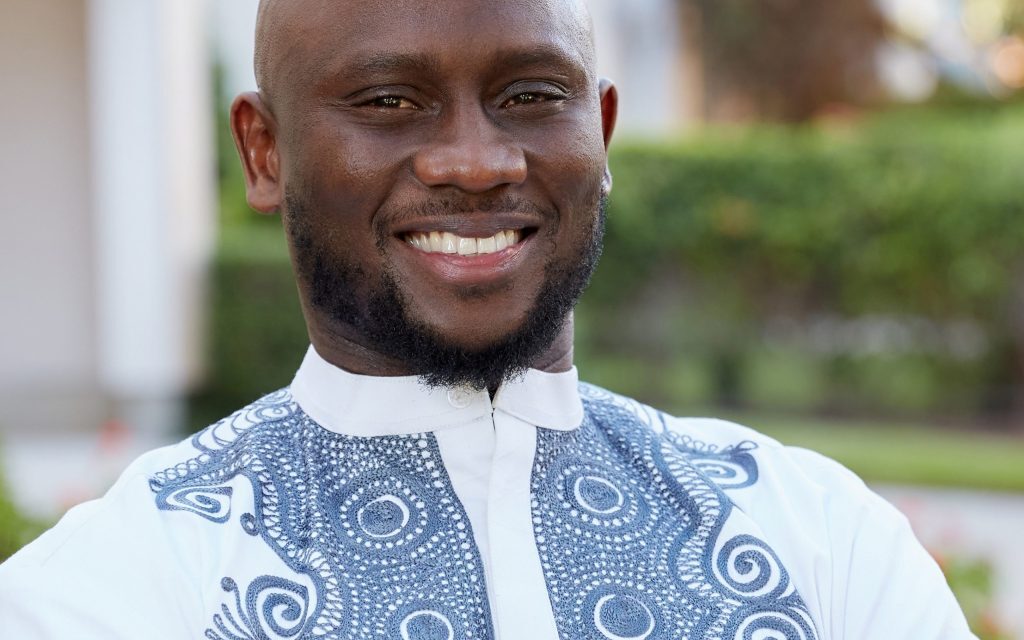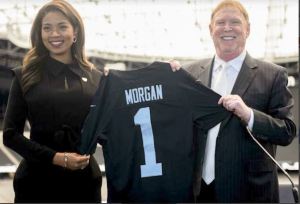By Wale Mafolasire

Biden recently praised the Black church, saying the world would be a different place without their example. He described the institution as a gift to the nation. And he is absolutely correct.
As an entrepreneur and CEO with a mission to connect people to the causes that matter most to them so they can change their world with kindness and generosity, I’ve spoken with hundreds of pastors. In many of these conversations, I hear a recurring theme: concerns about declining attendance, especially among younger generations, and the ability to attract them. At the annual Conversations Conference last month, which hosted more than 80 of the most influential Black pastors, we dove further into this topic, segueing into succession planning. According to a recent Barna study, about four in 10 Black church pastors say their churches do not have a plan or process in place for a senior pastor succession.
As America’s religious landscape changes and more faith leaders plan for their retirement, research shows the average age is 57, and one in four plan to retire before 2030. We cannot take this gift to our nation for granted. To ensure this gift continues giving, Black faith leaders must engage and inspire younger generations. I believe the answer lies in one word: bigheartedness.
Bigheartedness creates a foundation we can build on
While several studies indicate younger generations are leaving organized religion, others show that most young adults still consider themselves religious. While young Americans are leading the exodus from the church, they’re holding on to their values and they continue to be inspired by and care about causes and social issues like hunger, civic engagement, climate change and racial equity.
We know Black churches have historically played a vital role in empowering Black communities through civic engagement, advancing racial equity, and advocating for social justice. Givelify’s 2024 Giving in Faith report, a collaboration with Lake Institute on Faith and Giving, found that predominantly Black congregations, 42 percent, were significantly more likely to offer services that support engaged citizenship such as voter registration than predominantly White congregations at 9 percent. Predominantly Black congregations were also more likely to offer support for social justice movements than predominantly White congregations, with Black churches at 40 percent, compared to 27 percent in White establishments.
Black churches provide a spectrum of social services for unmet community needs, as they are often called upon by their communities to address local poverty, care for the elderly, and confront criminal justice issues. Much of this impactful work is funded by their congregations. And much of this work happens because it comes from the heart. This is a natural connection pastors can nurture.
Bigheartedness is the arc of inspiring stories we can amplify
Black churches are and have always been a beacon. I continue to be impressed with how they respond to the needs of their communities. For example, at New Life in Christ Church in O’Fallon, Ill., Bishop Geoffrey Dudley spearheads community initiatives, including the development of a residential community for senior citizens as part of his holistic approach to ministry. He could not do this important work without his congregation’s generosity.
While members are aware of this tremendous outreach and impact, awareness among the local community is low. I encourage pastors to tell these impactful stories not only in their teachings or sermons but also through other channels, like their social media platforms. And share ways younger generations can be involved, whether by donating, volunteering, or through in-kind gifts. These stories and calls to action can be an inspiration for everyone, bringing us together, changing hearts, and influencing minds.
By drawing them in with inspiring stories and faith-based teachings that resonate with them, we are not only leading with heart but also showing we care through our actions. Their engagement and generosity will follow, furthering missions and movements they care about.
Bigheartedness sets the right example
One of the top reasons younger generations leave the church is because members seem judgmental or hypocritical. They don’t feel connected. The responsibility to bring younger generations into the fold and keep them there can’t lie just with the pastors. The old adage says it takes a village, and it’s never been more applicable as current members play a critical role in building a welcoming space for communities of all generations.
As the Black community continues to grapple with racial gaps and disparities in homeownership, wealth, income, and education, we continue to have opportunities to build a stronger and more prosperous America. Our younger generations will need to lead the charge, and we must prepare them to step in and carry the leadership mantle.
Bigheartedness leads to a lasting legacy
Even as faith leaders and pastors continue to be intentional about transition plans, create advisory boards, and empower young leaders, the concern that they are not prepared for the decline in religious beliefs or practice among young adults remains.
The history of the Black church can galvanize its future and create new possibilities. Planting bighearted seeds today will ensure the legacy of the Black church lives on and continues to thrive well into the future.
I believe we all have big hearts, and we want to minister to others in ways that matter to them. I encourage us to imagine a world where everyone leads with heart. There’s no better time to start than now. Let’s do more good together.











